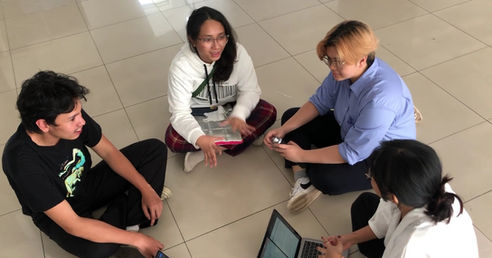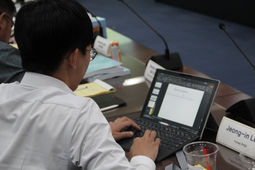
Why We Do
Wonju, South Korea
What is the reasoning behind Living Lab-based Classes?
Due to the immense societal challenges that humanity currently faces from climate change to demographic changes, we are forced to overcome our passivity and find alternative ways of dealing with these issues. In the face of the failures and reluctance of international and national governance to respond to these challenges adequately and effectively, we are compelled to act and find solutions for and by ourselves. Education is not an exception in this regard. Particularly, nurturing students who have a particular interest and the ability to confront and meet societal challenges is increasingly important. Living lab-based teaching can fulfill this purpose. Maximizing the ethos of living labs as a proactive way to seek innovative solutions by citizens themselves, the students learn by doing, in other words, by being involved in identifying local problems, investigating their causes and backgrounds and understanding their wider implications, and designing solutions in cooperation with other students, often with the help of experts, the students can acquire an ability to become responsible and civic-minded citizens. Most importantly, the students learn how to problematize what has been taken for granted, which is crucial for critical and creative thinking.
Moreover, by extending living labs in education for furthering international cooperation both in terms of contents and outreach, IPAID’s project also aims to enhance mutual understanding between students located in a range of countries. The students who are part of IPAID’s project share their living lab project outcomes and thereby have an opportunity to understand dissimilarities and similarities in how different local contexts allow for different responses to common global challenges. As we are increasingly asked to find locally-suited solutions to global challenges, namely ‘glocal solutions’, living lab-based classes implemented across different partner countries can provide opportunities to link locality to globality and vice versa.








